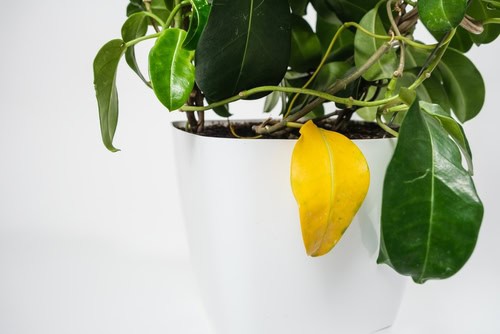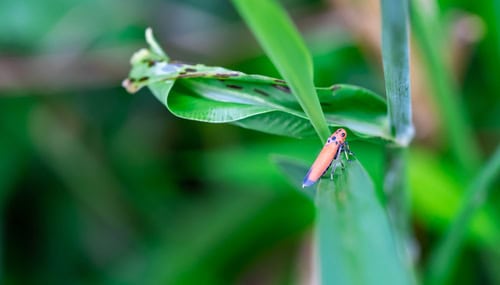
Where Germs Are Found Most in Homes?
June 9, 2022
Can Disinfectant Spray Kill Bugs?
July 31, 2022Will Disinfectant Kill Plants?

Will Disinfectant Kill Plants? So many plants in the home and garden need to be cared for. This is especially true when some plants have been propagated from cuttings or others have come from outside. When these plants are exposed to chemicals, like disinfectants and bleach, you should know what will affect the plant and what won’t.
It’s best not to use anything with toxicity on them, but sometimes people use chemicals with unknown effects. This article should answer your question and help you avoid chemicals that may kill your plants. Read on – Will Disinfectant Kill Plants?
What are the best products to use in disinfecting plants?

Do thorough research on disinfectants and chlorine bleach products approved by the EPA, specifically on the label. This will ensure that the product won’t be harmful to the plants. Some disinfectants that will be useful to your plants are such as:
Alcohol-based:
Alcohol and hydrogen peroxide are great to use. The plants won’t receive too much damage if they are sprayed with these chemicals. Alcohol is best at killing spores, and they don’t cause a lot of damage to the plant itself.
Chlorine bleach products:
This should be used in diluted and never in undiluted forms, as it will harm your plants. Bleach is excellent for sterilization, killing most bacteria on contact.
Baking soda:
Baking soda has a high alkaline content, which will help boost the pH and kill bacteria. You can add some of this to your plant’s water, allowing it to soak for several hours.
Vinegar:
It should be diluted with water at a ratio of 1:9. Vinegar has been used as an antiseptic since ancient times and is an inexpensive alternative. It can help disinfect your plants without causing too much damage.
What are some of the common household disinfectants that can be harmful to plants?

Many household disinfectants can harm your plants; therefore, you should avoid them as much as possible. Some of them to avoid are such as:
- Ammonia: Ammonia has been linked to respiratory problems; therefore, you should avoid it as much as possible.
- Drain cleaners: Drain cleaners contain corrosive substances that harm your plants when used.
- Windex: It contains ammonia and other chemicals, which can harm your plants
- Undiluted chlorine bleach: Undiluted bleach is best avoided because it can cause your plants to die.
Benefits of disinfecting plants

Disinfecting your plants is essential, especially for new cuttings. Diseased plants can be easily spread to other healthy plants, which will cause them all to die. New cuttings should always be disinfected before they are laid down in their new home. If you disinfect your plants early, you will have the following benefits:
- 1. You’ll be able to ensure that your plants won’t become diseased and die before their time.
- 2. You’ll be able to prevent the spread of the disease to other plants. Therefore you’ll have healthy plants in your home.
- 3. You’ll also be able to ensure that the other plants you have will increase as they will not be affected by the disease.
- 4. You’ll keep harmful bacteria, insects, and other pests away from your plants. Destructive insects and pests can destroy your garden within a short period, so you should do all that you can to protect them.
5. Finally, you’ll be able to save a lot of money over time. Plants require a lot of care and work from you, so you should do everything you can to keep them healthy and well cared for.
Are there professional services that you can get to do the disinfecting?

It would be best if you always considered getting professional disinfecting services to ensure good health for your plants. Disinfecting plants correctly requires a lot of work and carefulness.
A professional will have the right products and chemicals needed to ensure that the job is done correctly and there will be no errors. These expert professionals can also help you with other gardening needs, such as helping with pest control or even trimming hedges.
You can do thorough research on the services in your area and find out what their rates are. This way, you’ll be able to ensure that you won’t be overcharged for their services. Before you hire them, ensure that they have experience with plants, as this will give you an idea of how much they know and how great they are at the job.
What could happen to your plants if you overuse the disinfectants?

Some think applying more disinfectants to their plants will quickly eliminate pathogens and diseases. You should only ensure that you are only using the disinfectants in the right amounts. And if you are not sure, consult with professionals. Overuse of disinfectants will:
- Harm your plants: Some of the disinfectants have a residue that remains on the leaves and stems, which will slowly harm your plants.
- Can kill insects and bacteria: some insects, such as ants, benefit your plants. When you use too much disinfectant, you might kill these beneficial insects.
- Propagates the pathogens: The pathogens will survive in areas with high levels of disinfectants. For example, where you have a large surface of your plants, you might be exposing them to pathogens more frequently than they need.
- Cost a lot of money: overuse of disinfectants can be costly for you. For example, if you use many disinfectants on a single plant and it dies, it will be more expensive than using a smaller amount on the entire garden.
Will Disinfectant Kill Plants? – Conclusion

Disinfecting plants is essential in ensuring that they don’t get diseases or they won’t be affected. Disinfecting is also crucial if you want to keep your plants healthy and protect them from other harmful bacteria, insects, and pests. There are many types of disinfectants that you can use.
You should always ensure that you are using the right amount and get to choose the most effective products for your home. If you are not sure how to disinfect your plants, you can always consult with experts. You can find out more about plant disinfectants on the internet.




